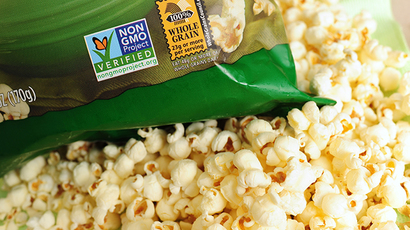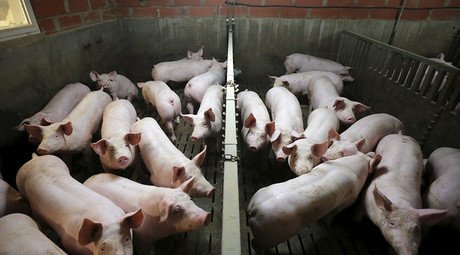Consumers may contest organic labeling claims, California Supreme Court says

Food labels that claim a product or farm is federally certified as organic are subject to consumer lawsuits, the California Supreme Court has ruled.
Consumers have the right to sue over false labeling of organic food products, the Court ruled, overturning an earlier decision by a lower court. Organic labeling is a standard decided and enforced by the US Department of Agriculture (USDA) and state governments.
Food labels, including those touting organic processes, “serve as markers for a host of tangible and intangible qualities consumers may come to associate with a particular source or method of production,” Justice Kathryn Werdegar wrote in a unanimous decision.
In 2013, the 2nd District Court of Appeals ruled that such lawsuits were not valid, given the federal government's role in creating and approving standards deemed organic. Food considered "organic" by the USDA is produced without genetic engineering, most conventional pesticides, synthetic fertilizers, ionizing irradiation or human sewage sludge as fertilizer. Sustainable farming practices are used to produce organic food. Organic meat or animal products come from animals not given antibiotics or growth hormones.
The class-action lawsuit, filed by consumer Michelle Quesada, alleged that Herb Thyme Farms Inc. falsely labeled its food, mixing organic and non-organic herbs together under an organic label. The company, a major herb producer in the US that claims all its products are 100-percent organic, said it had received USDA authorization to use the organic label.
#Frankenfish GMO salmon declared safe to eat, environmentalists rail against FDA https://t.co/gCZCcw9K3Hpic.twitter.com/v32ICs6w66
— RT America (@RT_America) November 20, 2015Rejecting Quesada's allegations, Herb Thyme argued that consumers could not sue in state court because the federal government was primarily responsible for regulating organic designations across the US. Congress intended for government agencies, not consumers, to monitor organic food rules, they argued. An undesirable patchwork of organic standards would result from allowing consumer lawsuits, the company's attorneys said.
"If a lone consumer can second-guess the USDA's certification, and a grower cannot rely on its federal authorization to use the term, the already high cost of production of such products will skyrocket, or more likely, there will be no organic products to enjoy," wrote Mark Kemple, an attorney for Herb Thyme Farms, in a 2014 brief to the California Supreme Court, according to AP.
However, the court ruled that consumer lawsuits would actually aid the national standard for organic labeling.
"Accordingly, state lawsuits alleging intentional organic mislabeling promote, rather than hinder, Congress's purposes and objectives," Judge Werdegar wrote.
Quesada's attorneys praised the court's decision, which reinstates the lawsuit representing thousands of consumers who "fell victim to Herb Thyme's scheme to mislead consumers into paying premium prices for impostor products," they said in a court filing.
"When Ms. Quesada goes in to buy a product that's stamped as organic, she wants to know this truly is organic, and she can feel good about it," said attorney Raymond Boucher.
The decision will almost certainly have an impact beyond California, experts said.
"Nothing in here is irrelevant to a parallel case in another state," Marsha Cohen, a professor at UC Hastings College of the Law, told AP. "The court is simply saying federal law does not supersede our consumer protection functions."
USDA climate change report highlights big challenges agriculture, food production faces in years ahead. https://t.co/zFhGWItBPg v @CivilEats
— Kai Olson-Sawyer (@kolsaw) December 4, 2015Organically produced food often runs into conflict with corporate agriculture, including transnational agrochemical and biotechnology corporation Monsanto. This week, a group of organizations led by the Organic Consumers Association announced that they are sending Monsanto to "trial for crimes against nature and humanity, and ecocide." The International Monsanto Tribunal will take place in October 2016, at the International Criminal Court at The Hague, Netherlands.
"Relying on the 'Guiding Principles on Business and Human Rights' adopted by the UN in 2011, an international court of lawyers and judges will assess the potential criminal liability of Monsanto for damages inflicted on human health and the environment," the groups announced in Paris, where the global summit on climate change is currently taking place.
"The court will also rely on the Rome Statute that created the International Criminal Court in The Hague in 2002, and it will consider whether to reform international criminal law to include crimes against the environment, or ecocide, as a prosecutable criminal offense."















